Non-Transactional Messages: How Marketing on WhatsApp Just Got a Major Boost

Previously, WhatsApp has only allowed messaging from a brand to a customer within a strictly transactional setting. Not anymore — here’s how the social media channel’s new non-transactional messages are a game-changer for marketing
Fact: The world’s number one messaging platform — with its two billion-plus monthly active users — is a winner for customer experiences. WhatsApp offers quick, personalized transactional-based conversations between brands and customers on a channel that people already use every day to chat with friends and family.
However, WhatsApp has always been super strict about protecting its users from spam-like messaging from ‘over-eager’, cynical, or just plain scammy brands. So committed is the platform that it even bans the worst offenders from the service outright. But in a sign that the company wants to empower genuine, responsible marketers wishing to reach out to customers with personalized offerings and updates, non-transactional messages — or ‘proactive’ messaging — has been introduced in a number of countries first. Now, non-transactional messages are available no matter the country.
What (and where) in the world are WhatsApp non-transactional messages?
Until now, messaging from a brand could only be initiated on WhatsApp as part of the transactional process, say, notifying the customer about an impending delivery. Conversely, non-transactional messages are notifications sent by brands to opted-in customers outside of this strict parameter.
The new type of messaging is designed to help brands offer greater holistic support to customers throughout their journeys as well as open up several new opportunities for marketers. Think product recommendations based on a customer’s buying history or gentle nudges about an abandoned cart (see use cases section).
It means brands and customers can now strike up conversations on a rolling basis that create deeper, more meaningful relationships. And it’s an approach that’s clearly working: After trialing non-transactional messages successfully, WhatsApp is now casting its net far wider by allowing non-transactional messages to be used globally.
3 rules for effective WhatsApp ‘proactive messaging’
WhatsApp offers three key tenets for non-transactional messaging to ensure brands keep their missives effective, targeted and above all, welcome when they arrive in a customer’s inbox:
1. Expected
People must opt-in to begin receiving non-transactional messages from a business, so they are not surprised – or irritated – when a message does arrive (see below).
2. Relevant
The message should be concise, personalized to the specific customer, contain necessary information only, and clearly outline any next steps the consumer needs take if they wish to.
3. Timely
People should receive a non-transactional message within a time window that is related to their interactions with the brand. For example, sending a message six months after the customer last interacted with a brand is a CX no-no.
Marketers should also take into account that WhatsApp is using non-transactional messaging to trial both broadcasting and periodic news alert features. Time will tell if the social channel will make them a permanent offering depending on how they are used — or abused.
7 non-transactional use cases for enhancing marketing-driven CX
From telco and travel to retail and finance, multiple sectors can benefit from the new functionality offered by proactive messaging. Here’s how:
1. Promotions
Announce a sale or a new product range with vouchers or shoutouts:
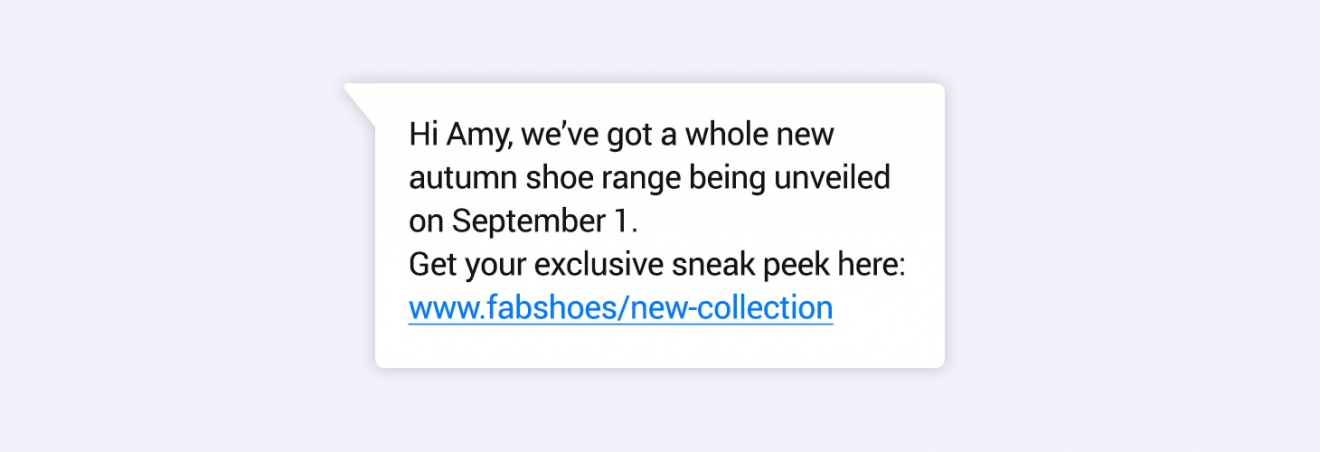
2. Personal offers
Offer discount codes tailored to individual customers based on their personal details; for example, celebrating a birthday:
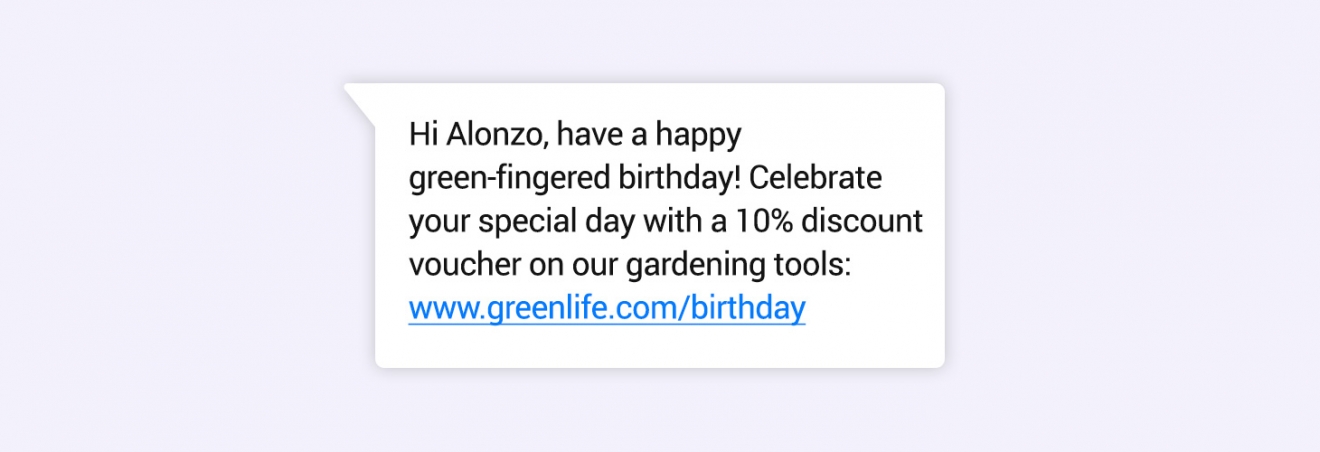
3. Back in stock
Send an update to the customer when an item they were interested in — but was unavailable at the time – is back in-store:
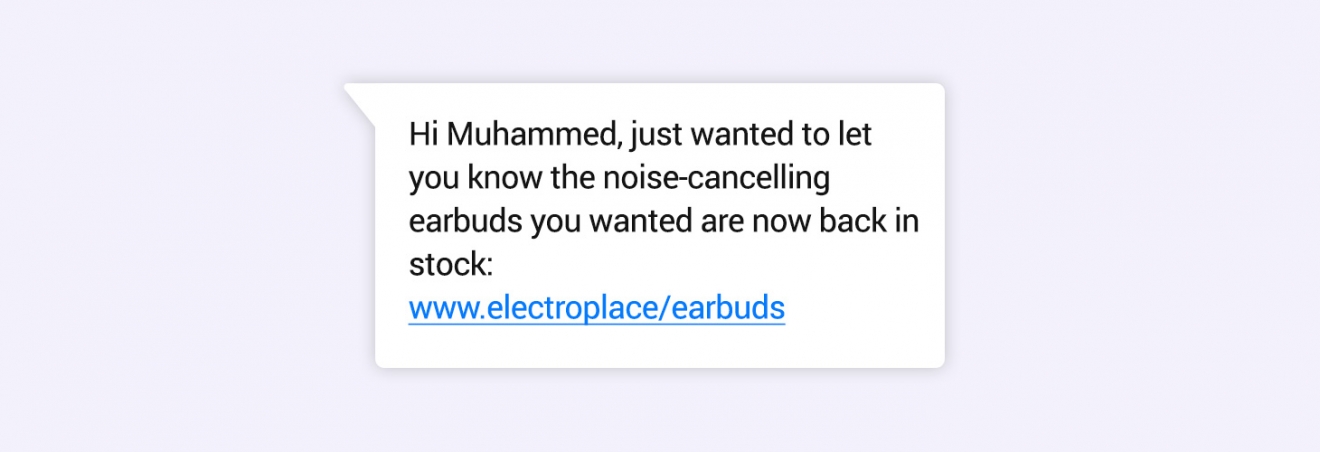
4. Reminders
Send a message reminding the customer they have an appointment or need to top-up a service or product:
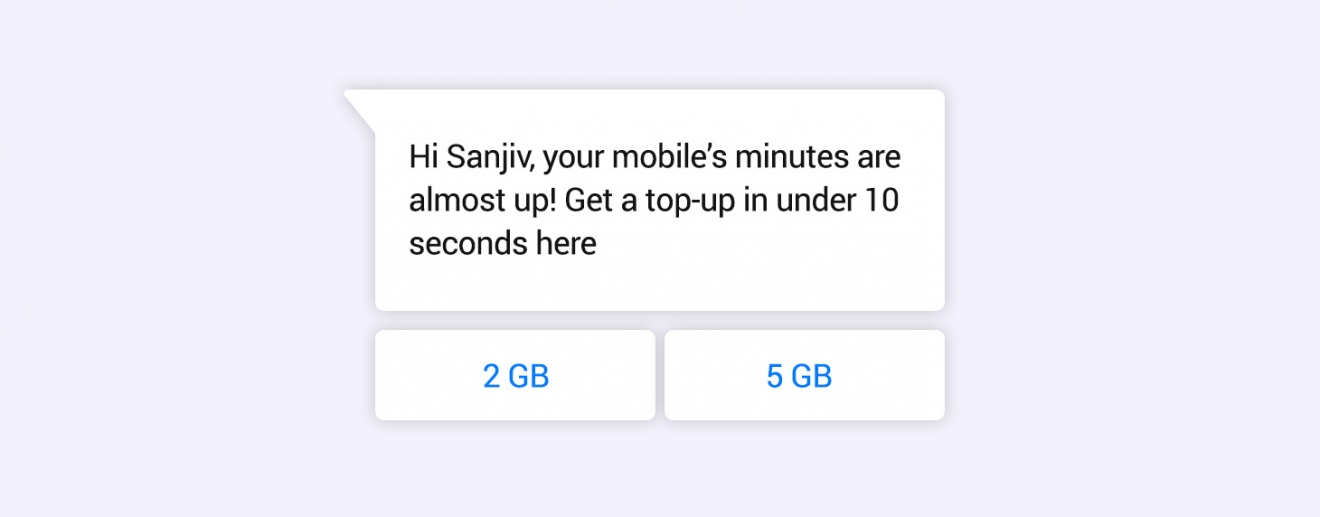
5. Price alerts
Alert the customer about a service or product they are tracking so they’re always kept updated:
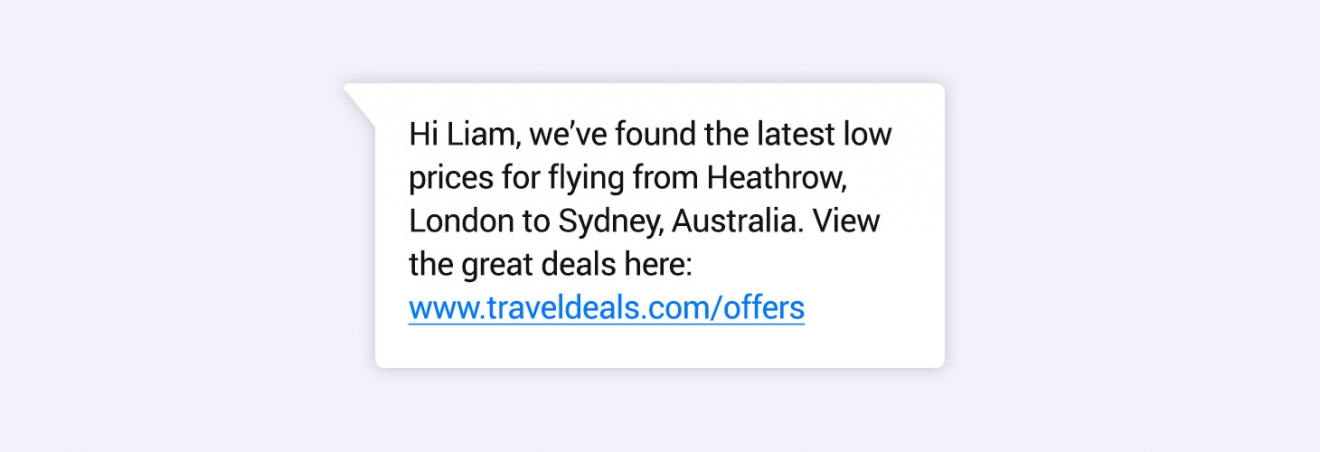
6. Sale recoveries
Send a cart recovery reminder to the customer about an item they’ve abandoned in their cart to maximize sale volumes:
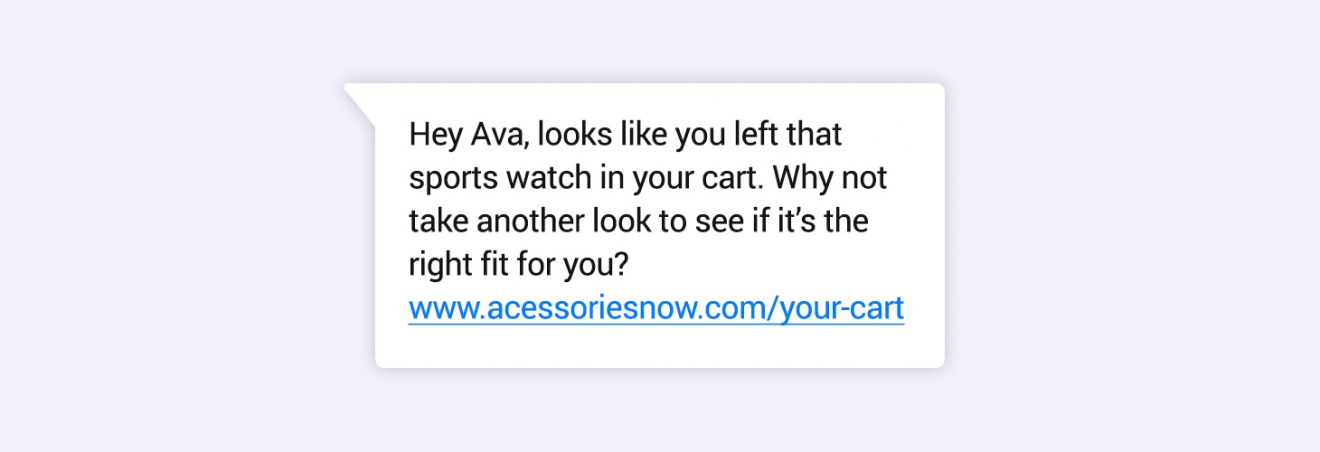
7. Cross-selling
Promote additional products or services to the customer based on their previous purchases:
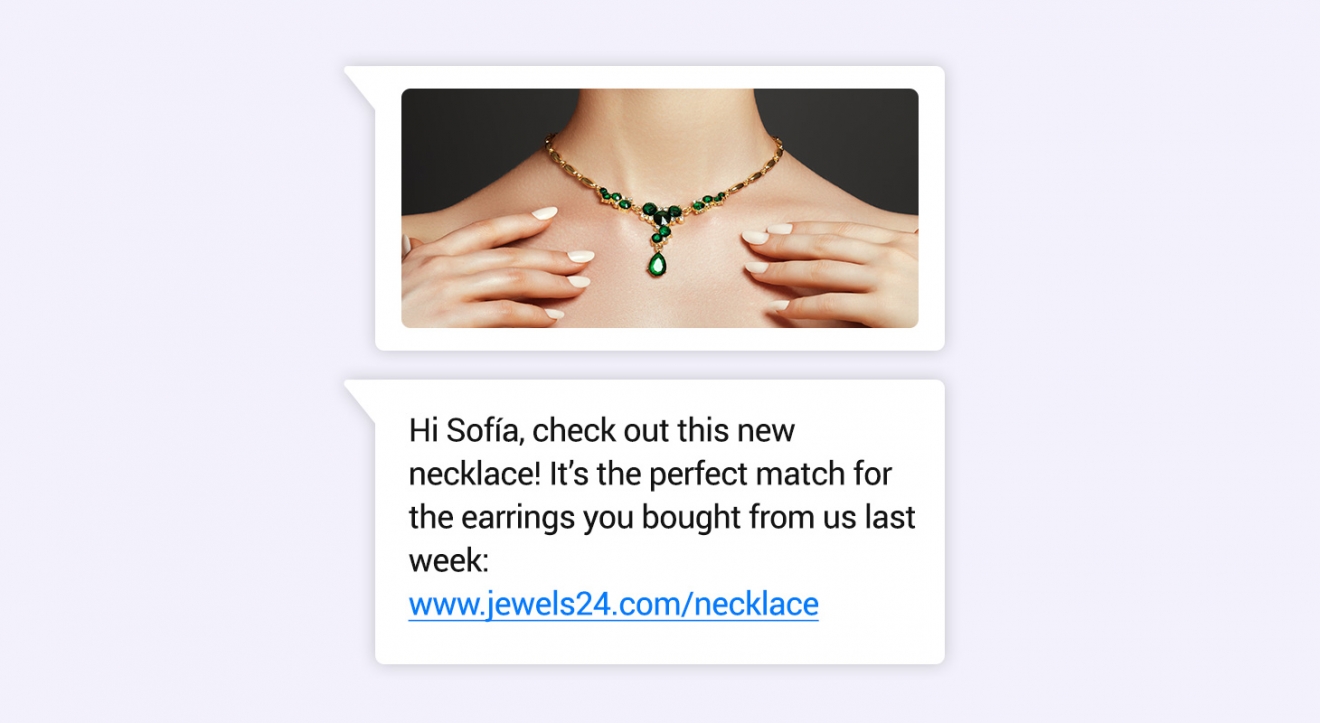
Going client-side: How to create and send non-transactional messages
Producing template messages
For WhatsApp Business API users, the process is simple as the new functionality is already fully integrated with WhatsApp’s service. It means all brands need to do is confirm they’re based in a qualifying country before creating a template message for review by WhatsApp (just as they would with an existing template message).
This means choosing one of the eleven pre-existing template categories; for instance, selecting the ‘alert update’ category for the price alert use case featured above. Remember, if using media message templates featuring an image or video, the brand must now also provide samples for vetting. Finally, any template will still need to meet WhatsApp’s strict formatting criteria (see below) as well as the conditions of the social channel’s Business policies. Once approved, the non-transactional message is ready for use.
Defining a template
A non-transactional messaging template uses the same formatting as transactional templates, i.e., standard message content that can be personalized through numbered placeholders {{1}} that represent the message’s variables. These can be replaced with, say, customer names, order numbers, dates, times, even special characters. Take this example from the price alert use case:
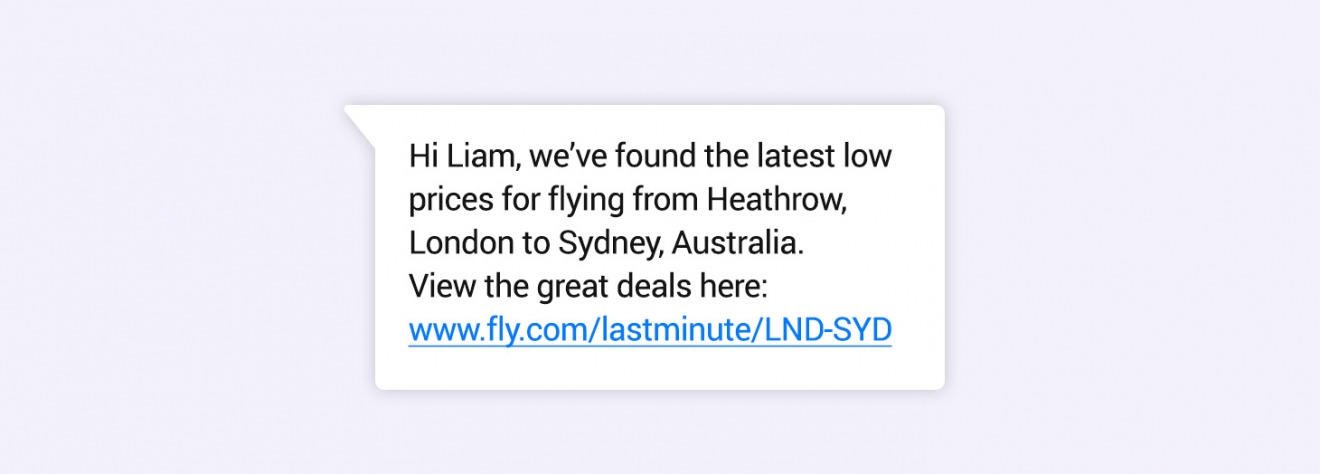
In its stock form, the template would look like this:
Hi {{1}}, we’ve found the latest low prices for flying from {{2}} to {{3}}. View the great deals here: {{4}}
Create template messages that sail through the WhatsApp review process here: How to create a Message Template in WhatsApp
Managing customers
The most important rule? Consent. A customer reaching out to a brand with, say, a request for more info does not count as an opt-in for receiving non-transactional messaging. Instead, the customer must opt-in via a defined process with the brand’s name clearly displayed:
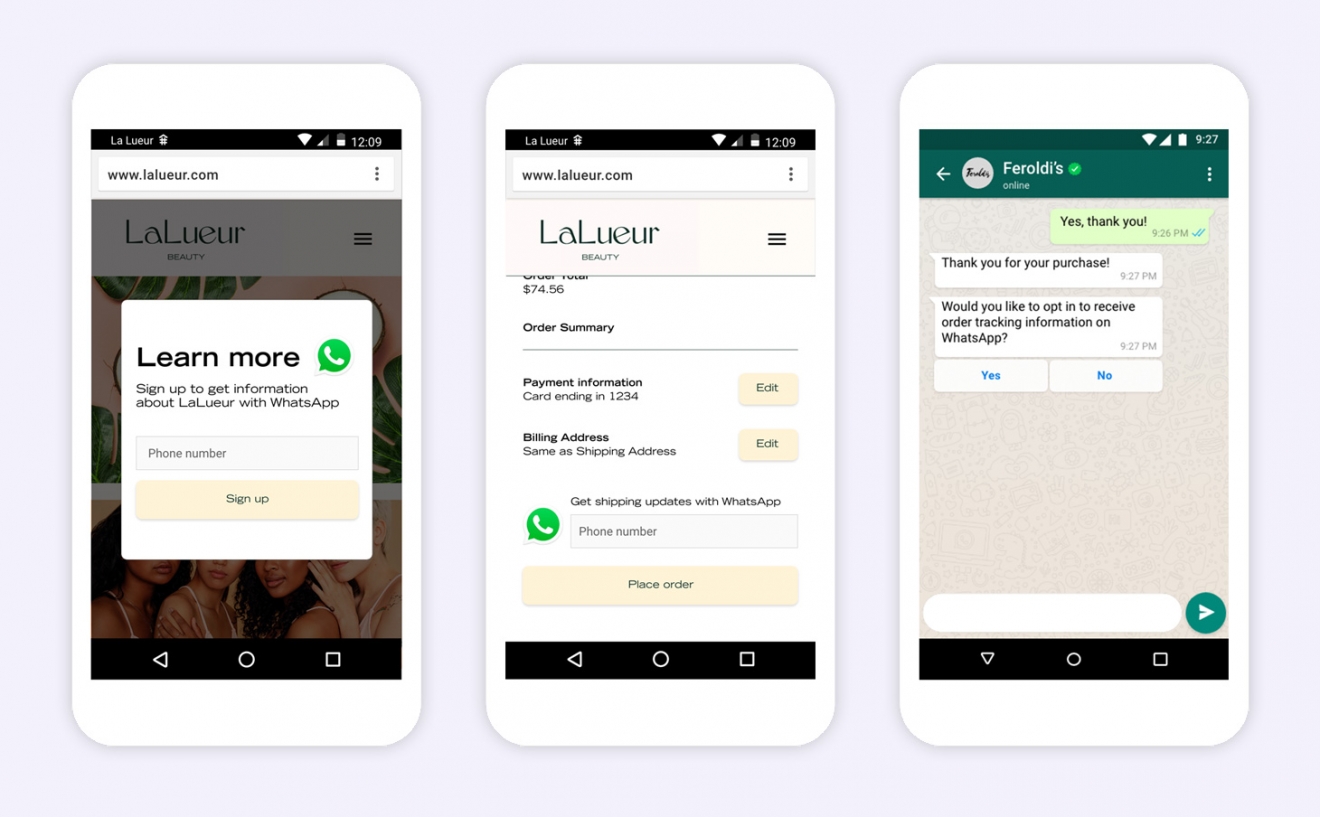
Once consent has been given, customers will then expect useful, actionable messaging that is relevant and personalized to them. To achieve this, consider asking for individual opt-ins for specific types of non-transactional messaging. Perhaps it’s updates about an ongoing service or opting in to product recommendations. By being transparent and targeted, brands can ensure they never risk being blocked by customers unhappy with what they may perceive to be unnecessary messaging.
Remember, if a customer does believe a brand is spamming them, they can report or block the offending business — and WhatsApp monitors blocking levels closely and will ban repeat offenders. Importantly, the social channel has also introduced a feature where customers can now offer a reason why they’ve chosen to block a brand.

Finally, don’t forget to offer the customer a quick and easy way to opt-out of receiving further non-transactional messaging.
WhatsApp: Now the marketer’s number one social channel choice
By exercising best practice from the off, brands can quickly start realizing the potential of the social channel’s new messaging service — as well as WhatsApp’s pre-existing marketing offerings. For instance, Click-to-Chat buttons within Facebook and Instagram ads and Conversation Starters on company websites enable customers to begin engaging immediately with a brand in WhatsApp. They also offer companies the ideal opportunity to ask the customer to opt-in to non-transactional messages.Better still, there is no steep learning curve to rolling out or incorporating the social channel into existing CX strategies. Official WhatsApp Business providers including tyntec can guide brands through the entire process, from integrating with existing business systems via the WhatsApp Business API to message template creation and conversation management using platforms such as tyntec’s Conversations Inbox.
Best of all, if trials of the non-transactional messaging are successful, expect the functionality to be rolled out globally, potentially ushering in a new era for marketers and WhatsApp itself as it aims to bring consumers and their favorite brands even closer together. And it can’t come a moment too soon either as, according to Sprout Social, 64% of consumers want brands to connect with them — and WhatsApp’s non-transactional messaging is one more vital step towards achieving that goal.
Discover what non-transactional messaging can do for your CX and marketing strategies by creating your tyntec account – with 1,500 free messages included. Create your account.
